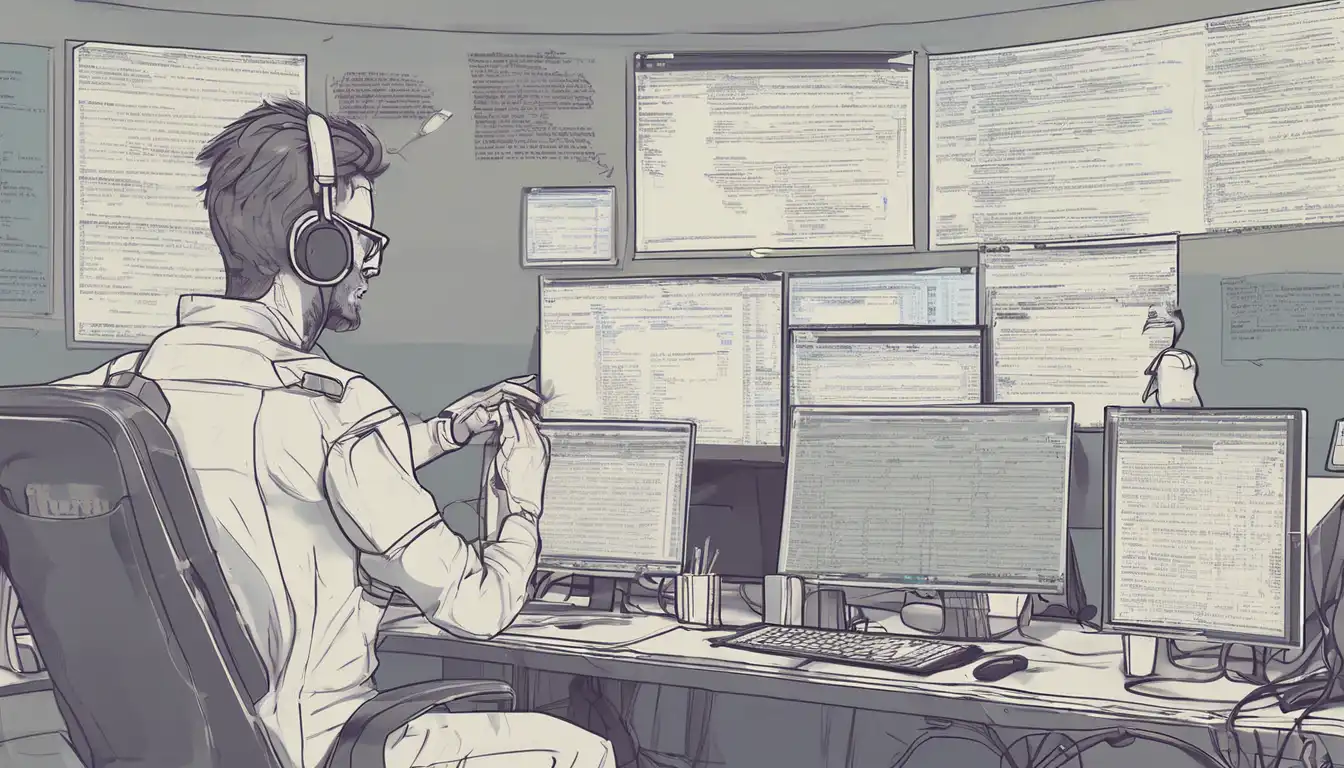Introduction to Professional Code Debugging
Debugging is an essential skill for any programmer, yet many struggle with it. This guide will walk you through the professional techniques to debug your code efficiently, saving you time and frustration.
Understanding the Debugging Process
Before diving into debugging, it's crucial to understand what it entails. Debugging is the process of identifying and removing errors from your code to ensure it runs as intended.
Common Types of Bugs
- Syntax errors
- Logical errors
- Runtime errors
Setting Up Your Debugging Environment
A proper debugging environment can significantly streamline the process. Most modern IDEs come with built-in debugging tools that allow you to step through your code, inspect variables, and more.
Essential Debugging Tools
- Integrated Development Environments (IDEs)
- Debugging extensions
- Logging frameworks
Step-by-Step Debugging Techniques
Adopting a systematic approach to debugging can help you identify and fix bugs more efficiently. Here’s how the pros do it.
1. Reproduce the Bug
First, ensure you can consistently reproduce the bug. This step is crucial for understanding the conditions under which the bug occurs.
2. Isolate the Problem
Narrow down the section of code where the bug is occurring. This can be done by commenting out parts of your code or using debugging tools to step through execution.
3. Understand the Root Cause
Once you've isolated the bug, dig deeper to understand why it’s happening. This might involve inspecting variable values or the flow of execution.
4. Fix and Test
After identifying the root cause, make the necessary corrections. Then, test your fix to ensure the bug is resolved without introducing new issues.
Advanced Debugging Strategies
Beyond the basics, there are advanced strategies that can help you tackle more complex bugs.
Using Breakpoints Wisely
Breakpoints allow you to pause execution at specific points. Strategic placement of breakpoints can help you quickly hone in on problematic code.
Leveraging Logging
Logging can provide insights into your code’s execution flow and state, especially in environments where interactive debugging isn’t possible.
Preventing Future Bugs
While debugging is inevitable, there are practices you can adopt to minimize bugs in your code.
Code Reviews
Peer reviews can catch errors before they make it into production, saving time and resources.
Unit Testing
Writing tests for your code can help catch bugs early and ensure your code behaves as expected.
Conclusion
Debugging is a skill that improves with practice and patience. By adopting a systematic approach and leveraging the right tools, you can debug your code like a pro. Remember, the goal is not just to fix bugs but to understand why they occurred and how to prevent them in the future.
For more insights into programming and software development, check out our programming tips section.
